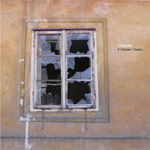|
|
 |
Dusted Reviews
Artist: Sohrab Album: A Hidden Place Label: Touch Review date: Feb. 17, 2011 |

|
|
|
 |
Sohrab is a tragic figure in Persian mythology. The Shahnameh (Tale of Kings) tells how he was fathered by a Persian champion and the princess of a neighboring nation and then faced his father in battle. Father grievously injures son, king of Persia withholds medical intervention to keep father under his thumb, son dies; in light of the brutality visited upon protesters of the outcome of the June 2009 Iranian elections, you can see how the story has legs. It’s also worth nothing that the literal meaning of the word “sohrab” is “red water” and connotes blood. When a young Iranian guy names himself Sohrab, he’s saying something.
The artist known as Sohrab used to play in a punk band with his brother, but the authorities shut them down before they could finish a gig, and since then, he’s confined himself to making music at home with a sampler. A Hidden Place, his first release, sounds very much like a product of its instrument, and fits right in with other Touch releases. With its sweeps of slightly grainy synthetic strings and long loops of squishy bumps that could be boats bumping together, the first track “Susanna” sounds like it could have been lifted from a pre-Autour de la Lune Biosphere record.
Given the album’s name and the artist’s history, I imagine Sohrab hiding out from a country and a life he can’t stand by donning headphones, surfing the web, and finding sounds that take him away. Anxiety pervades this music; on “Somebody,” the sounds of roosters crowing and a woman’s wordless singing gnaw at the clanking sounds of household activity, and “Himmel Über Teheran” opens with the ominous toll of a bell before widening out into a layers of bright, pulsing tones. Human voices and chickens return on the title track, overwhelming the jet-like sounds with lusty hollers and heedless clucking; they sound like something you want to avoid, and the music that follows feels ever more interiorized, as though Sohrab is burrowing deep into the sounds of his machines and his own private thoughts.
“Zarrin” ends the record on a brighter note, its pixilated organ chords bobbing lazily on a sea of crackle. But it’s hard to know how hopeful we should feel for Sohrab. At the end of 2010, he was living in Germany, awaiting the results of his application for refugee status. Will this record signal a beginning, with the attendant possibility that he’ll grow beyond his fairly obvious influences to make statements that are original as well as personal? Or will be go back to Iran with a highly Google-able trail to bring him down?
By Bill Meyer
|







